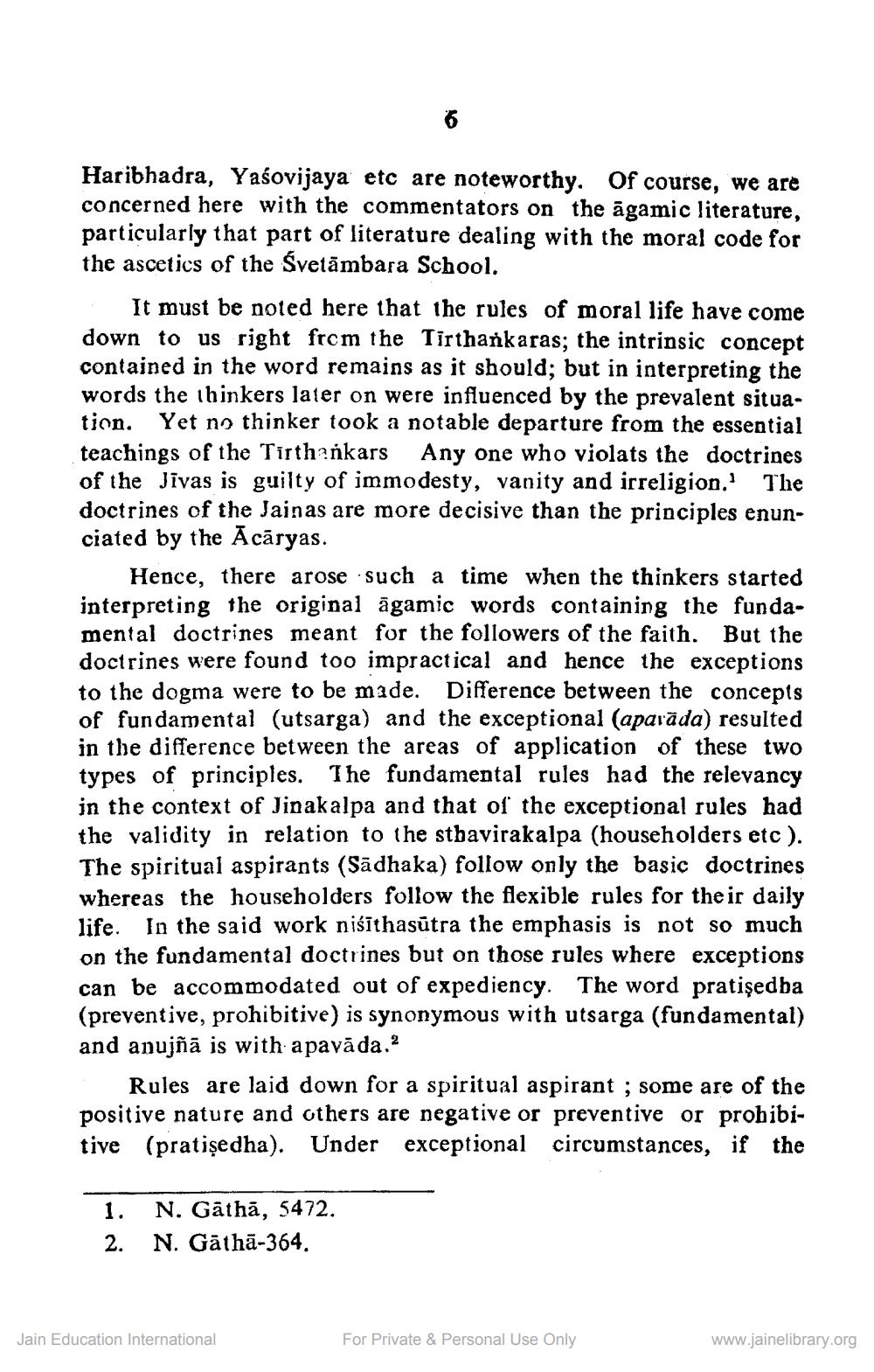________________
Haribhadra, Yaśovijaya etc are noteworthy. Of course, we are concerned here with the commentators on the ägamic literature, particularly that part of literature dealing with the moral code for the ascetics of the Svetāmbara School.
It must be noted here that the rules of moral life have come down to us right from the Tirthankaras; the intrinsic concept contained in the word remains as it should; but in interpreting the words the thinkers later on were influenced by the prevalent situation. Yet no thinker took a notable departure from the essential teachings of the Tirthańkars Any one who violats the doctrines of the Jivas is guilty of immodesty, vanity and irreligion. The doctrines of the Jainas are more decisive than the principles enunciated by the Acāryas.
Hence, there arose such a time when the thinkers started interpreting the original āgamic words containing the fundamental doctrines meant for the followers of the faith. But the doctrines were found too impractical and hence the exceptions to the dogma were to be made. Difference between the concepts of fundamental (utsarga) and the exceptional (aparāda) resulted in the difference between the areas of application of these two types of principles. The fundamental rules had the relevancy in the context of Jinakalpa and that of the exceptional rules had the validity in relation to the stbavirakalpa (householders etc). The spiritual aspirants (Sadhaka) follow only the basic doctrines whereas the householders follow the flexible rules for their daily life. In the said work niśīthasūtra the emphasis is not so much on the fundamental doctrines but on those rules where exceptions can be accommodated out of expediency. The word pratişedba (preventive, prohibitive) is synonymous with utsarga (fundamental) and anujñā is with apavāda.?
Rules are laid down for a spiritual aspirant ; some are of the positive nature and others are negative or preventive or probibitive (pratişedha). Under exceptional circumstances, if the
1. N. Gāthā, 5472. 2. N. Gāthā-364.
Jain Education International
For Private & Personal Use Only
www.jainelibrary.org




